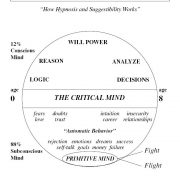Self Care During the Holidays: 10 Tips
Self care during the holidays is essential if you want to stay sane. Getting seriously stressed out, experiencing emotional breakdowns, having conflicts with family members and getting sick may not be the technical definition of insanity, but if these things happen due to lack of self care during the holidays, then you might FEEL as if you were going insane.
10 Tips for Self Care During the Holidays
1. Get enough sleep. When you’re sleep deprived you’re irritable and prone to overwhelm, so negative emotions are much more easily triggered. You’re low on energy and not able to deal effectively with life’s normal challenges.Your immune system becomes challenged leaving you open to getting sick. Fatigue will cause you to reach for high sugar, high carb foods, making you feel even worse.
2. Avoid overdosing on sugar. Although sugar may give you a short term boost, the following drop in blood sugar can result in depression, anxiety , fatigue, irritability and mood swings. Other possible side effects from sugar overload: yeast infections, backaches, indigestion, bloating, eczema and frequent colds. Click here to read more.
3. Be mindful when you drink alcohol. Self care during the holidays does not include getting a DUI, throwing up in your boss’s bathroom, getting into a verbal or physical conflict, saying things you later regret, or waking up with a pounding hangover. The amount of alcohol that causes intoxication is enough to suppress your immune system, leaving you open to colds, viruses or worse.
4. Drink lots of water. All the benefits of drinking water are too plentiful to list here. Remember that if you don’t drink water you will die. Seriously. Drink enough water and you’ll have less headaches, joint pain, constipation, crankiness and weight gain.
5. Wash your hands. It’s cold outside. Everyone is in the house. Some folks are carrying around flu and cold viruses but aren’t sick yet. Think about all the handshaking, fingers in mouths, sneezing and coughing that goes on at a typical holiday party. Before you eat, always wash your hands.
5. Eat whole foods. Whole foods are foods that resemble how they grow in nature, which means unprocessed or minimally processed. These types of foods are nutrient rich and contribute to a healthy body. They keep your immune system strong and help keep you disease free.
6. Move your body. The benefits of consistent movement of your body are long and lasting. Improved mood, increased energy, better sleep, more fun, better sex, calmer mind, less stress, the list goes on and on. It could be walking a few minutes a day or going to the gym. Just do something.
7. Take breaks and days off. Taking some days off to shop, wrap, renew or rest is essential to self care during the holidays. One way to deal with stress is to have regular periods of down time. Regular breaks during working hours can give you better memory, improved concentration, and increased creativity.
8. Nurture yourself. What fills you up? What makes you feel like life is worth living? What activities can you do that could give you peak experiences? Self care during the holidays means giving to yourself all the good, juicy, healthy, happy stuff that you can.
9. Lower your expectations. A lot of unhappiness and frustration comes from having expectations about the holidays and not having them met to your satisfaction. Understand that people and circumstance change and that self care during the holidays might mean having to accept what shows up. The quickest way to insanity is to invest a lot of emotion into wanting what is, to be what it is not.
10. Find your own meaning. Ultimately, you are responsible for your holiday experience.You can be swept along by things and situations that hold no meaning for you, or you can you find something significant about this time of year that resonates with your deepest feelings and values. Remember that nothing has any meaning other than what you give it.
If you need help with your self care during the holiday season, you can contact me by clicking here.
You are worth self care during the holidays, aren’t you?
Ted
p.s. Did I leave anything out about self care during the holidays? If you think I did, please let me know in the comment section.









 In last week’s post I talked about how hypnosis is a natural state we all go into; while watching TV, while driving, while exercising, before we go to bed and right after we wake up.
In last week’s post I talked about how hypnosis is a natural state we all go into; while watching TV, while driving, while exercising, before we go to bed and right after we wake up.





